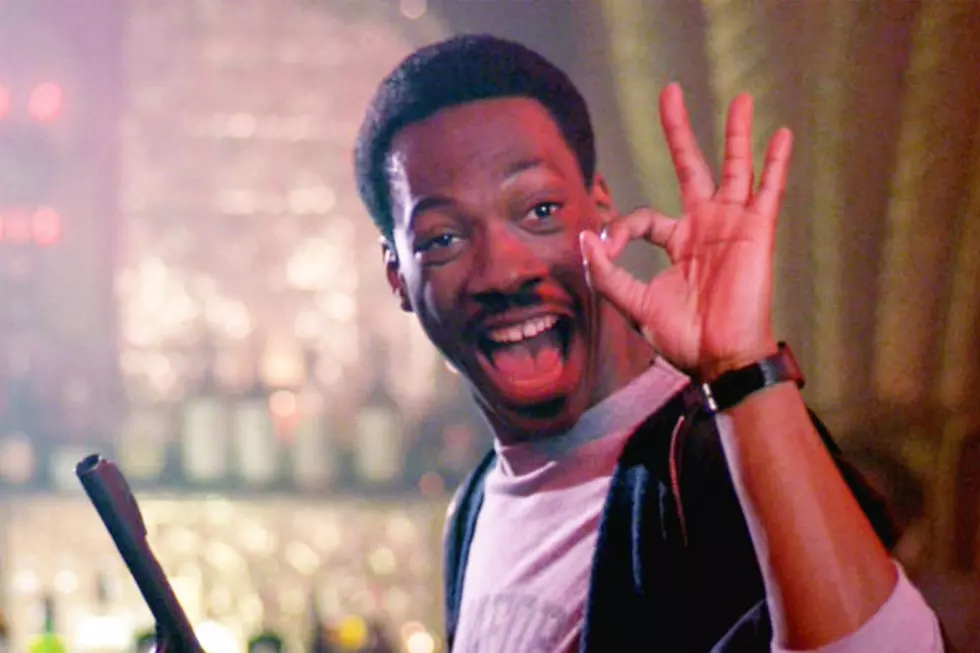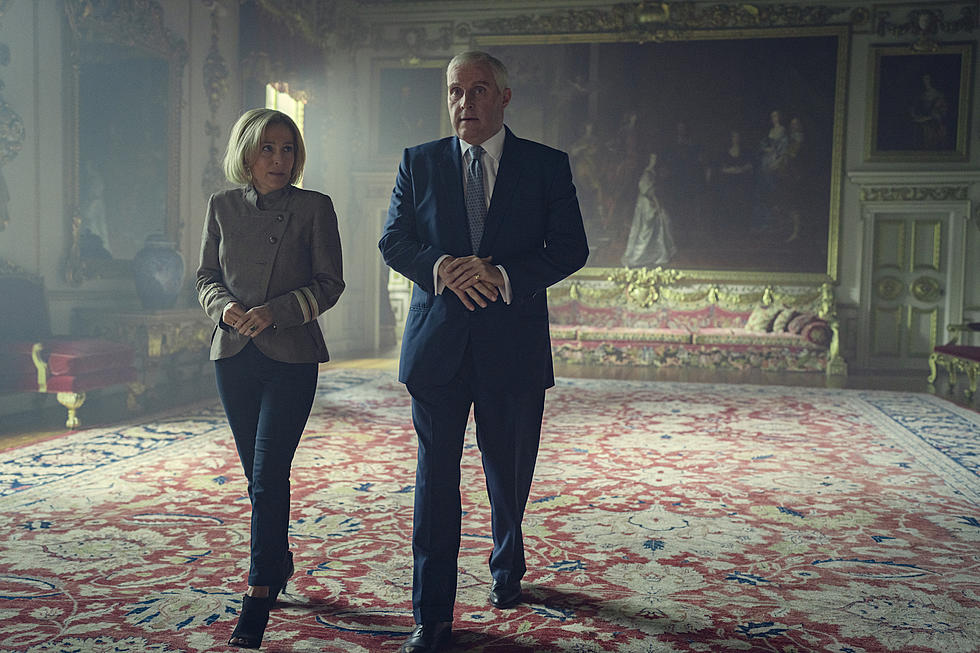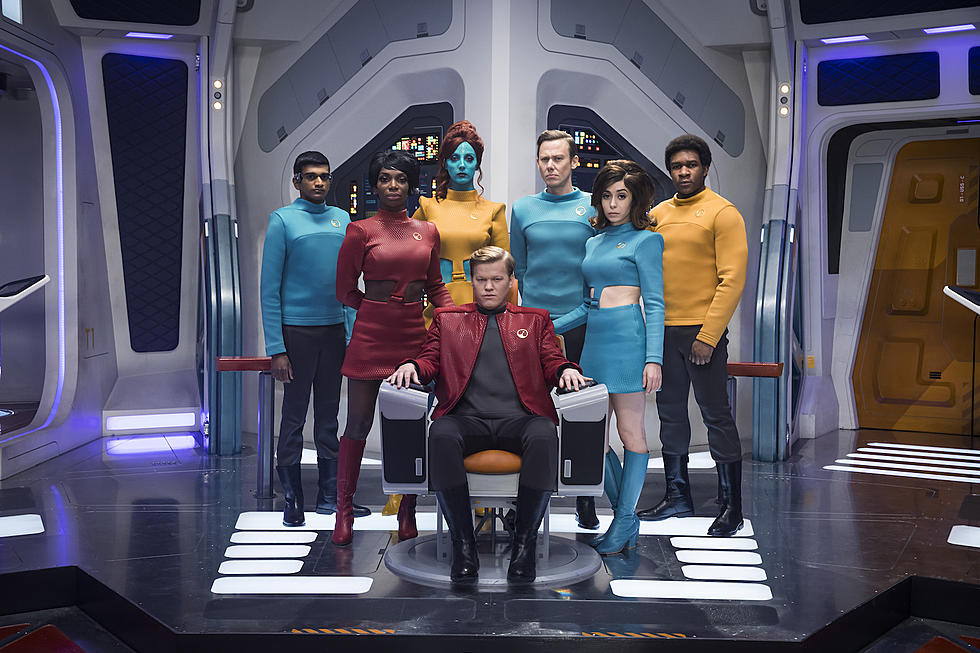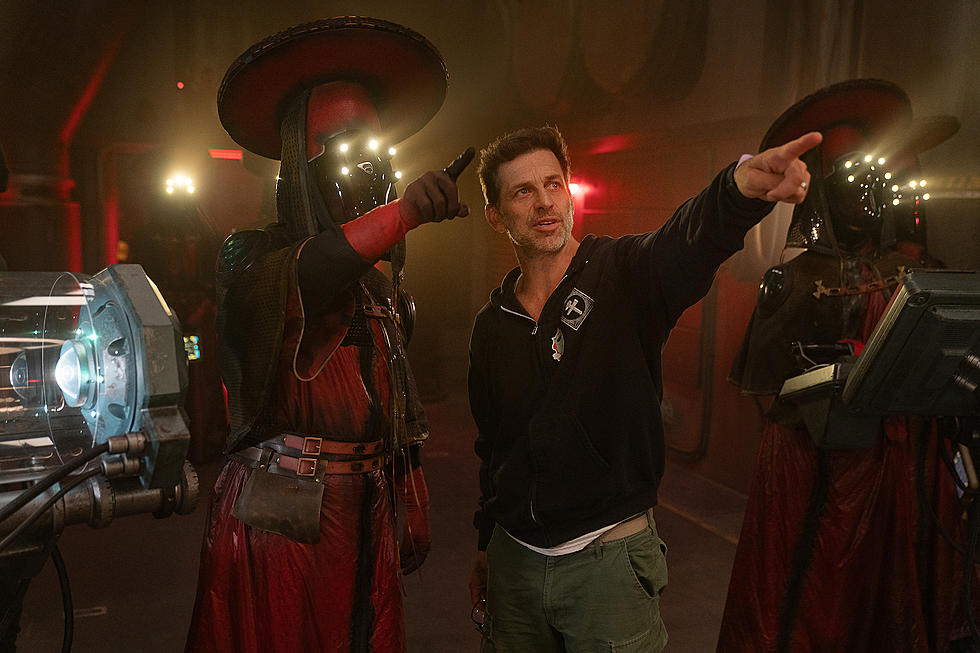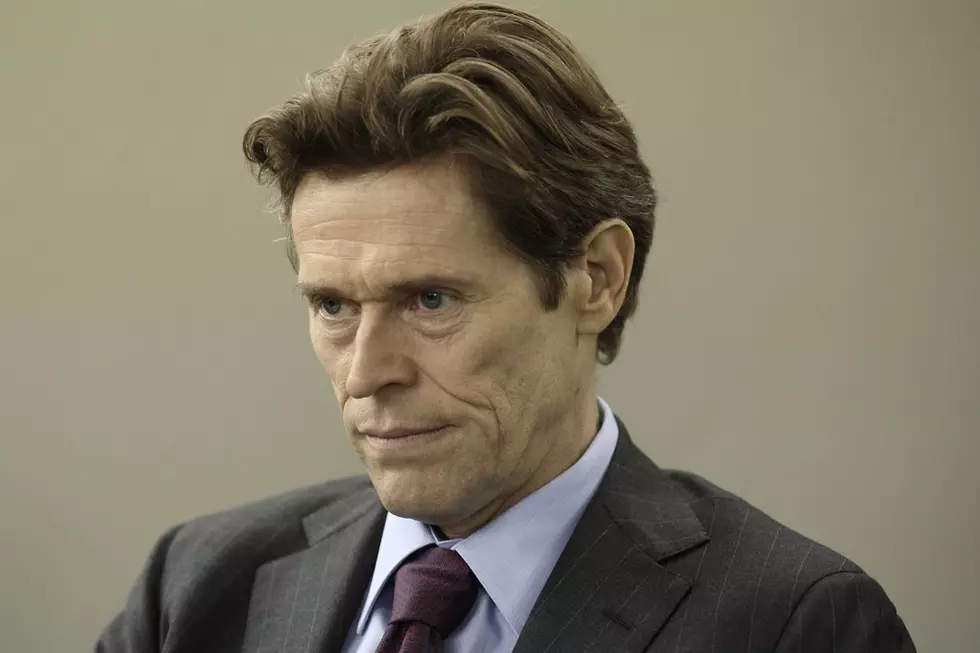
Willem Dafoe on ‘Death Note’ and Why He Aspires To Be Less Recognizable On Screen
There’s an unmistakable distinctness to Willem Dafoe. He has one of the most recognizable faces in the movies, with his wild eyes and toothy smile that’s often tinged with a sinister mania. But even when Dafoe isn’t visible onscreen he makes his presence known through his voice, a signature low, crackly growl.
You won’t see Dafoe in Netflix’s Death Note, but you’ll know who he is the moment his character appears. Ryuk, a god of death, is the executioner behind the Death Note, a notebook that allows its owner to kill anyone whose name is written inside. In Adam Wingard’s adaptation of the Japanese manga by Tsugumi Ohba, Dafoe voices Ryuk; when he drops the notebook outside a Seattle high school, Nat Wolff’s Light Turner picks it up and begins using his new power to cleanse the world of evil.
Last week, I caught up with Dafoe in Manhattan to talk about Death Note and the differences between voicing a character and playing one on set. Dafoe told me about approaching acting like dancing, working with Sean Baker on the upcoming film The Florida Project, and how he often wishes he was a less recognizable in movies.
Were you familiar with the original manga or the anime before you signed on?
You know, I wasn’t. Blissfully ignorant, and that’s okay because the story is strong and basically, I said, “Do you want me to voice this character? Okay, what does this character look like?” They showed me a rendering, and I thought, “Okay yeah, I can do this.”
Did you see the rendering of the character with Jason Liles in mo-cap?
Before, and in fact, when I initially talked to them they said [Ryuk would] always be in the shadows. It wasn’t even clear that there was going to be an actor in a suit doing it, a 6-foot-9 actor. So I was a little surprised by that, but then they also sweetened it a little bit when I was doing the recording session, they did some motion capture stuff. They took some of that information and that helped them with the face.
I saw that in the credits. At the end of the movie there’s a shot of you with the mo-cap stuff on your face. How did doing that help you create this character?
You know, it was just voice in that respect because I can’t control the other parts. And as far as my face, you don’t control your face, you just do your actions and your face will do it. If anything, my face is too expressive, sometimes I have to calm it down. But doing the voice work, you approach it both psychologically and musically because you’re dealing with rhythm, you’re dealing with sound. That’s what you’re dealing with and what’s cool is since you’re not presenting anything except for that image, it frees you. So you get in a room and the director is there, and you just try to give him as much variation as possible and give him plenty to work with. That’s the way to approach it. So it’s fun. It’s a call and response. It’s like a game.
Does doing voicework that way have any impact on the way you approach roles where you are physically present on set?
Probably. But you always change your approach depending on what kind of role you are doing and what your kind of job is, how you’re placed in the story, what you imagine is your end. So you’re always adjusting what kind of performing and how to approach it. But I always work from a physical place, from actions, from tasks. I’ve worked so much psychologically, that comes naturally as you apply yourself to tasks. So when it’s not voice work, your voice is just one aspect of the whole package. When you can’t express yourself in your body, you still use your body, but it’s all filtered through your voice.
That’s interesting because when I think of your roles, I think of the physicality of them.
Well that’s my favorite thing to do. It’s a bit of a cliché, I’ve said in lots of interviews, but I have always approached things more as a dancer or an athlete more than I do from a heady place. Because the heady part will come out of applying yourself to the actions. Instinct is often wiser and your body is wiser than your thoughts.
Have you had that same approach throughout your whole career or has that evolved and changed over the years?
It’s probably evolved and changed, but my performing is very much informed by my work in the theatre. The theater I come from is not a traditional theatre. The theater that I still work in is not a traditional theater, it has to do with events and movements and light and sound. For me it’s a more – not abstract, it’s actually very practical. It’s about doing things and making things rather than expressing things. You express things by making things.
Using the elements around you to create.
Yeah. Years ago I did a film called Tom and Viv where I played T.S. Eliot and he said poetry is not emotion it’s – you better check me on this, but the sense was, poetry is not emotion, it’s an escape from emotion. Because he liked the preciseness of applying yourself to certain words and out of those words, because those words have resonance with us, something is born, you know? Rather than saying, you know, I cried to show you something, you don’t show. You do things and that stuff happens and people watch. They witness it with you. That’s my approach generally.
So this character, Ryuk, he isn’t necessarily totally evil because he’s carrying out this duty as a god of death. How do you view his moral compass?
He has no moral compass. I mean, he’s like a thing of nature. Often with characters that sometimes don’t do nice things, somewhere in the story is what makes you judge them. It’s like our court system. It’s so much based on intention. We judge people by their intention, sometimes even more than the acts. The same act with a different intention is treated quite differently. With Ryuk, there’s no rhyme or reason. He’s a death god. We can’t apply human logic to him. But we can apply kind of human characteristics, like the fact that he’s bored. He wants to be amused and these humans amuse him. I know that not so much specifically from the script, but from some of the manga material. He’s fascinated, he gets a kick out of these people. So by placing the Death Note, he creates a challenge, he creates a game, really. And it’s a game that does involve some very elemental violent, not so good things. But he also is in dialogue with the Light character like, “Hey baby, what are you doing exactly? What does this all mean?” I find that interesting.
Did you use much from the manga and anime to build a backstory to understanding him?
Not so much. Just by what I just said. I didn’t feel the need so much for backstory. You know, you can’t play backstory. Sometimes it can orient you to where to direct your attention or where to direct your imagination. But backstory usually is just kind of a justification to keep confident. Because you can’t play it. It tells you where to go, but yeah, it’s like what are you going to do? It doesn’t help.
So you go with what’s in the script, and go from there.
And then go from there. And if you apply yourself in a way that’s engaged, things will come up. Things will naturally come up because you’re sort of living it. Rather than front-loading and saying, “Oh I know what this means.” And I want to show what this means and this justifies that which tells this, he had this kind of life and that does this. And it becomes crafted in a way that becomes dead for me. You always gotta keep it vibrant. You always gotta keep that kind of tension between abandonment, abandoning yourself and a kind of control. It’s always the dynamic in any type of performing for me. Sometimes you go to one side sometimes you go to the other, but you can’t go from one extreme to the other. There always has to be this kind of tension.
You’ve played so many great villainous characters, but recently you’ve started to play some characters who are a little more compassionate.
My villainous characters had compassion. [Laughs] I’ve been lucky that recently I’ve been able to do lots of different kinds of things. It’s just that the perception is that the more popular movies – I tend to play roles that can be seen more as villainous, but I don’t see it that way. Maybe that’s the case when an actor has to give every character their day in court so they don’t judge them in the same way.
You’re also in The Florida Project, which is opening soon.
Very excited about that.
What was it like to work with Sean Baker and so many non-professional actors?
Great. You know, sometimes I have this aspiration to be an actor that when you see him on the screen, you think he’s not an actor. [Laughs] That’s really true. Of course it’s a ridiculous thing when you’ve made a lot of movies like I have, some people are going to have associations and they’re going to recognize you. But I mean the basic idea behind that is pretty solid. Some of my favorite actors in the movies, particularly like in B movies through the years, they aren’t always considered the greatest actors but they’re the best to watch and they’re the most human and they’re the best performers. Sometimes I aspire to that, so I’m not a snob about people who don’t have traditional actor skills. When you watch a lot of foreign movies, world cinema, you don’t know who’s an actor and who isn’t sometimes. I aspire to have that kind of flexibility.
So to work with non-actors is fun, because there’s a different language and in some ways they can be freer. In this case it was working with kids and some real people in the real situation. Because we were shooting in a place that was very site-specific. It was a real place and we were using real people and the child actors were, I would say they were children first. They weren’t actors that happened to be children, they were children who happened to be actors, which is a big difference. I really enjoyed that. I think it is a beautiful movie. Sean is a very courageous filmmaker. I think it expresses something important about a world that a lot of us don’t know.
It’s also a very interesting character that I have because he’s not an extraordinary person. He doesn’t have any big dramatic scenes, no big transformation, no big breakdown, no physical handicap. Nothing like that. He’s a perfectly ordinary person, but the character is complex because he has to wear lots of different hats in his role in the story. He has to function in a lot of ways, so he’s got a lot of roles in his life. He’s a protector, he’s a father, he’s a disciplinarian, he’s a neighbor. It’s interesting.
Death Note is available on Netflix and in limited theaters on August 25.
[button href=”http://screencrush.com/willem-dafoe-aquaman-vulko/” title=”WILLEM DAFOE REVEALS ‘AQUAMAN’ CHARACTER DETAILS” align=”center”
More From ScreenCrush
